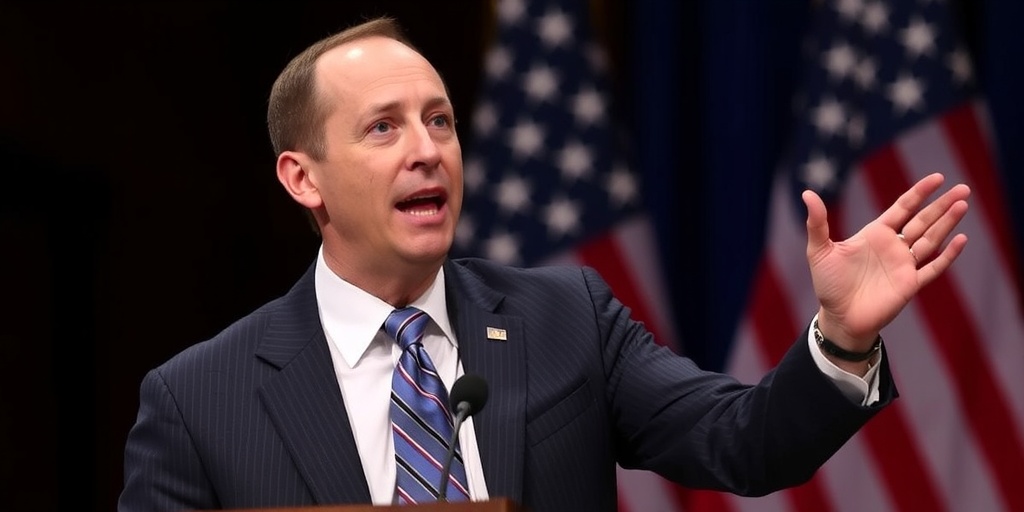Now Reading: Democrats Stay Hungry for Votes Despite Setbacks
-
01
Democrats Stay Hungry for Votes Despite Setbacks
Democrats Stay Hungry for Votes Despite Setbacks

Democratic Party’s Resilience in Special Elections Signals Potential for Future Victories
As the Democratic Party gears up for future elections, it appears to be confronting a complex landscape of challenges and opportunities. Despite an agenda that some argue is exhausted and a general disillusionment among voters, recent special election results indicate a potential for Democratic resurgence. This dynamic, particularly in key races, has the potential to shape both upcoming elections and the political climate in the United States leading up to the 2028 presidential election.
Since the inauguration of President Trump, Democrats have generally fared well in special elections, often outperforming their performance during the previous presidential election cycle. According to data collected by The Downballot, Democrats have led by an average of 12 percentage points across 11 special elections. This includes significant victories in traditionally Republican strongholds, such as Iowa and Pennsylvania, where they’ve managed to flip two seats.
Tonight’s elections, including those in Florida’s First and Sixth Districts, provide further insight into this evolving narrative. While Democrats are not expected to win both races outright, indicators suggest that the Sixth District could yield a fiercely competitive race. Notably, President Trump secured a remarkable 30-point victory in this area during the last election, making the current competitiveness an intriguing development. Additionally, anticipation surrounds Wisconsin’s Supreme Court election, where enthusiasm from Democratic voters may once again play a critical role.
Historically, the Democratic Party has demonstrated strength in special and off-year elections, often outperforming their rivals during low-turnout periods. Research suggests that Democrats tend to engage highly motivated voters more effectively, especially those who are more educated and politically involved. This trend appears to persist, as early voting data from Florida indicates a more significant Democratic turnout compared to past elections, despite the Republican leanings of the districts. Although specific party registration data from Wisconsin is lacking, estimates suggest that early voting is trending more Democratic than it did previously, with early voters potentially supporting Democratic candidates by a margin exceeding 20 points.
However, it is essential to exercise caution in interpreting these results. The Democratic strength observed in special elections does not automatically transform into similar successes in higher-turnout presidential contests. The dedicated and highly engaged demographic driving these special elections might not translate similarly in a general election. For instance, previous analyses revealed that voters participating in Wisconsin’s Supreme Court races since 2016 would have leaned toward supporting Vice President Harris over Trump, even though Trump ultimately won the state in the 2024 election.
Despite these challenges, the persistent Democratic performance in special elections underscores a fundamental truth about current political dynamics: Trump’s administration elicits substantial opposition, mobilizing highly engaged voters who see electoral victories as integral to resisting his policies. This trend has surfaced as a crucial factor for the GOP, especially considering the delicate nature of their House majority; retirements and special elections may jeopardize Republican control before the midterm elections in 2026.
As the Democratic Party reflects on these results, it is essential to acknowledge ongoing issues regarding messaging, policy focus, and support among specific demographic groups. Challenges remain among younger voters and nonwhite populations, which could risk the party’s longer-term viability. Nevertheless, the observable Democratic momentum in special elections offers a glimmer of hope for party leaders and candidates alike.
Moreover, the implications of these special elections extend beyond immediate results. The realization of Republican vulnerability in off-year contests may sway political strategies, prompting GOP figures to distance themselves from Trump amid growing electoral concerns. With Democrats maintaining a resilient showing, especially after recent elections that resonate with historical patterns of resistance during Trump’s leadership, the stage is set for an ongoing political tussle leading into the next presidential cycle.
In conclusion, although the Democratic Party faces myriad obstacles, their recent successes in special elections reflect a profound resilience that could position them favorably in upcoming contests. As the political landscape continues to shift, both parties will need to recalibrate their strategies and messaging, with an eye toward engaging diverse voter bases and mobilizing turnout, particularly in critical midterm elections. The coming months will undoubtedly shape not only the Democratic narrative for 2028 but the broader trajectory of American politics.
Stay Informed With the Latest & Most Important News
Previous Post
Next Post
-
 01New technology breakthrough has everyone talking right now
01New technology breakthrough has everyone talking right now -
 02Unbelievable life hack everyone needs to try today
02Unbelievable life hack everyone needs to try today -
 03Fascinating discovery found buried deep beneath the ocean
03Fascinating discovery found buried deep beneath the ocean -
 04Man invents genius device that solves everyday problems
04Man invents genius device that solves everyday problems -
 05Shocking discovery that changes what we know forever
05Shocking discovery that changes what we know forever -
 06Internet goes wild over celebrity’s unexpected fashion choice
06Internet goes wild over celebrity’s unexpected fashion choice -
 07Rare animal sighting stuns scientists and wildlife lovers
07Rare animal sighting stuns scientists and wildlife lovers





















